Adra Powers, Class of 1921, Suffrage Essay and Bibliography, 1918
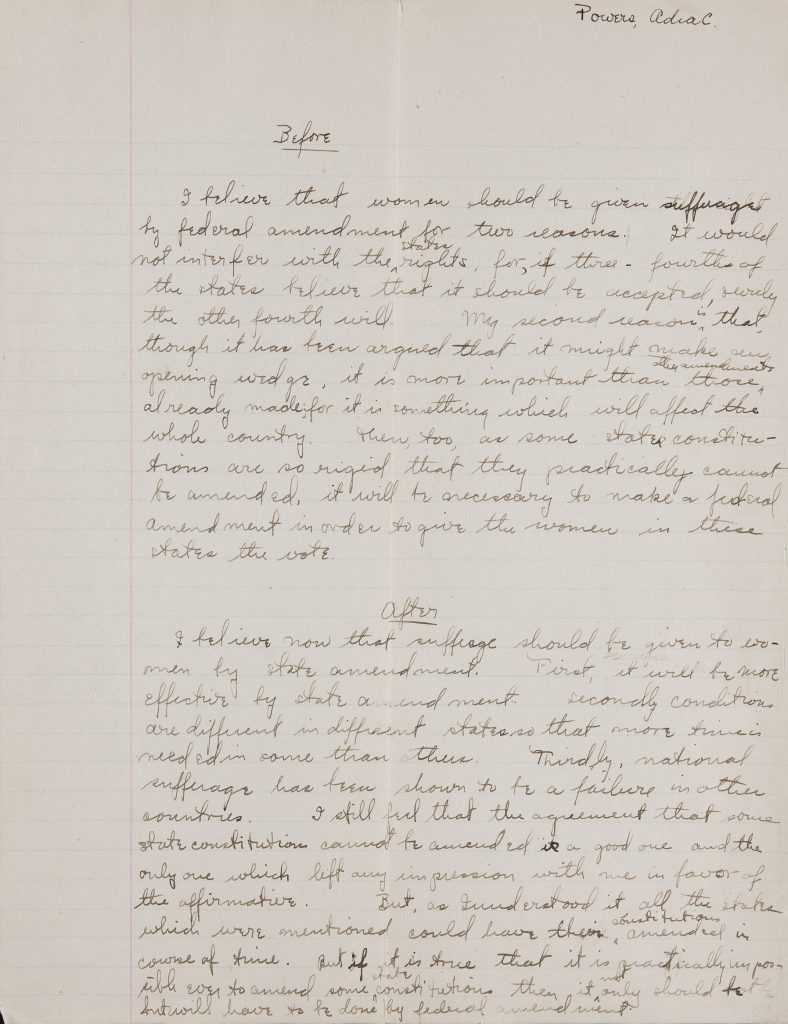
Adra Powers, class of 1921, turned in these two assignments about suffrage for her English II class, showing that students were engaging in political topics through the curriculum. The first, a revision of a short paragraph, does not debate whether women should be granted suffrage, but instead focuses on how that right should be granted. She argues that constitutional amendments for individual states would be more effective than a federal amendment—a realistic viewpoint at the time, since the Nineteenth Amendment kept falling short of getting enough votes in Congress. It would be defeated five times before it passed through both the House and the Senate with enough support a year later. Her second assignment is a bibliography, and covers a larger scope of material, suggesting that Adra was researching the issue of women’s suffrage beyond constitutional amendments.
Edith Packard, x-Class of 1897, Letter to her Father, October 27, 1895
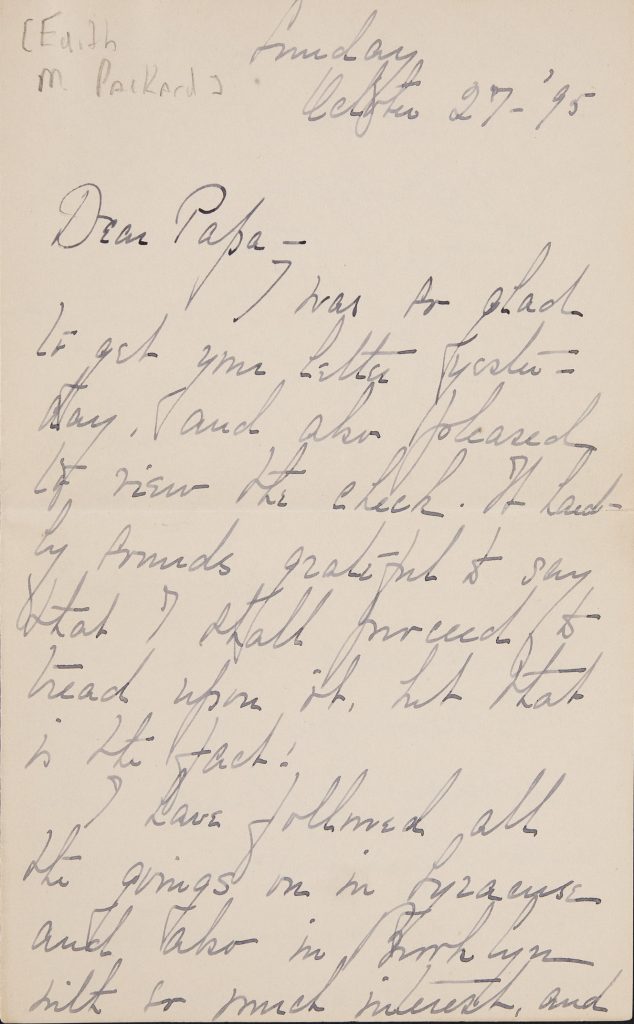
The week before she would cast her vote in the mock election, Edith Packard, x-Class of 1897, wrote to her father that students “are all up in arms just now over the question of woman’s suffrage.” She explains the occasion for the mock election by saying “there is to be a test vote in Massachusetts as to whether women want the ballot for municipal affairs,” although this vote was open to both men and women. Edith believes “the greater part of the girls are decidedly opposed to it” at Mount Holyoke. Omitting her own beliefs from the discussion, she asks her father, “you do not have any fierce and rabid opinions on the subject do you.”
The Class of 1897 Llamarada
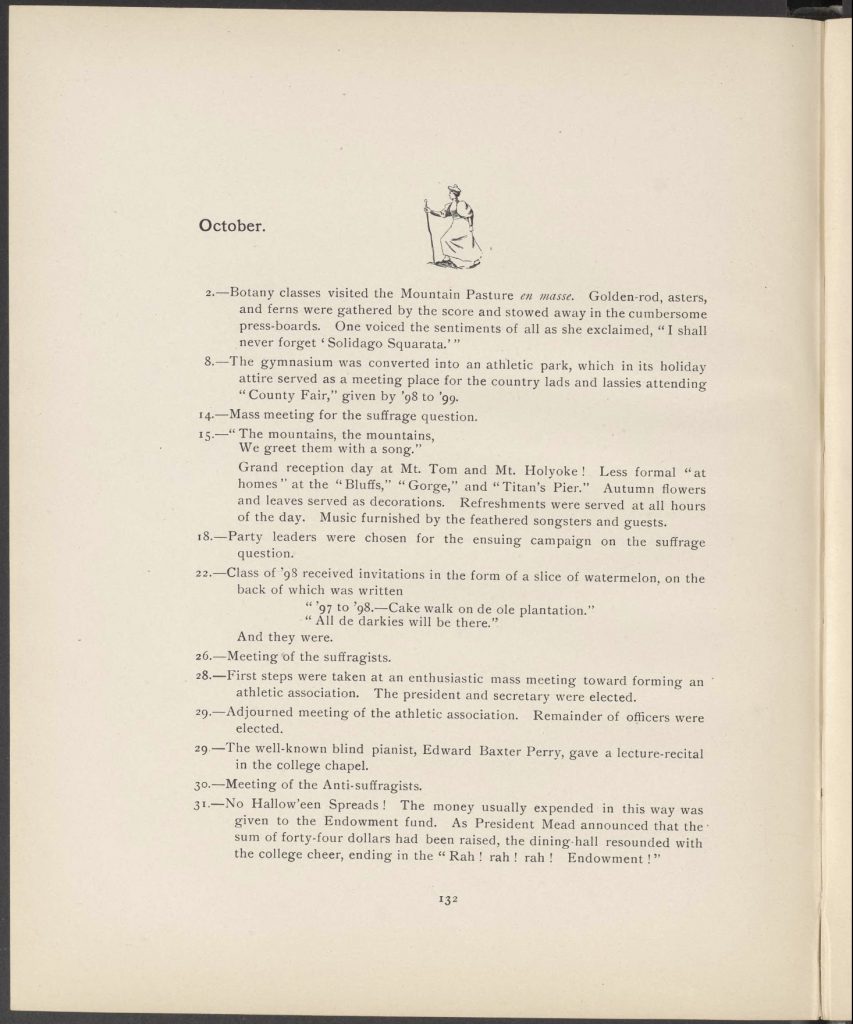
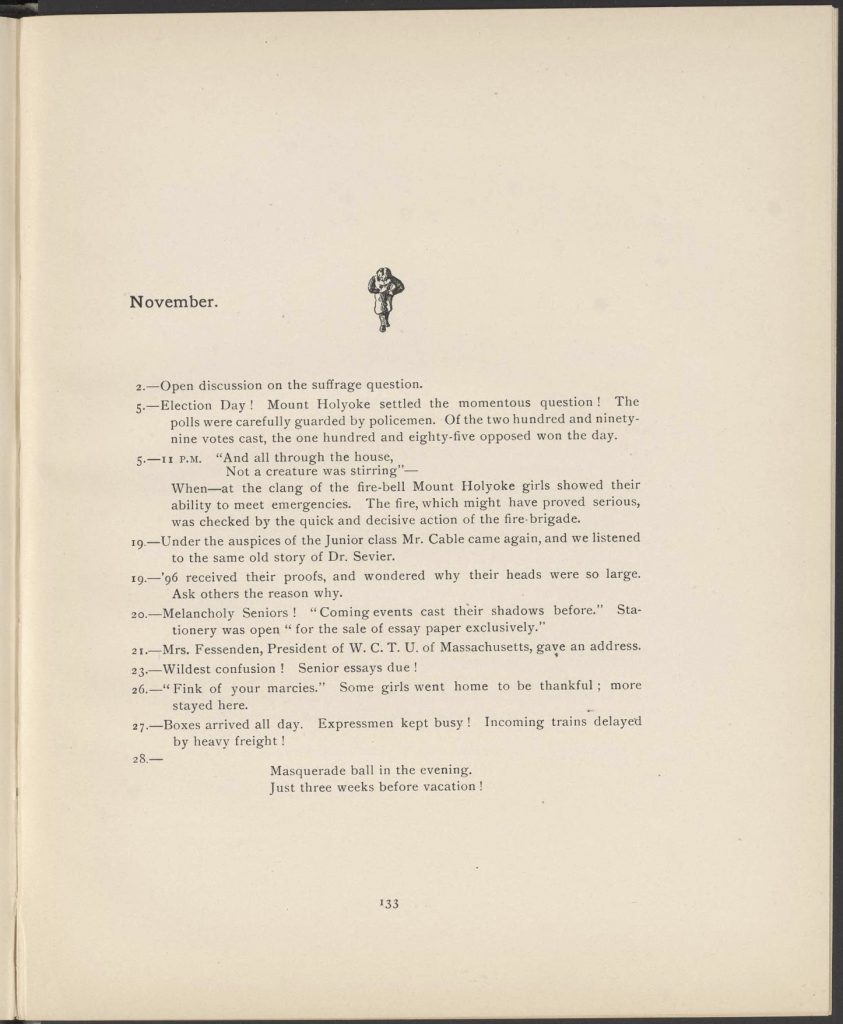
The Class of 1897’s yearbook includes a record of events from March 1896 to February 1897. The pages for October and November chronicle the various events that occurred during the mock election for the “suffrage question,” which was introduced at a meeting on October 14th and decided by vote on November 5th, the same day in which the general population cast their ballots. These pages also mention a Junior-Sophomore cake walk on October 22 with a racist theme, reflecting the normalization of these ideas within an overwhelmingly white administration and student body.
Matilda Calder, Class of 1896, Letters to Family, October-November 1895
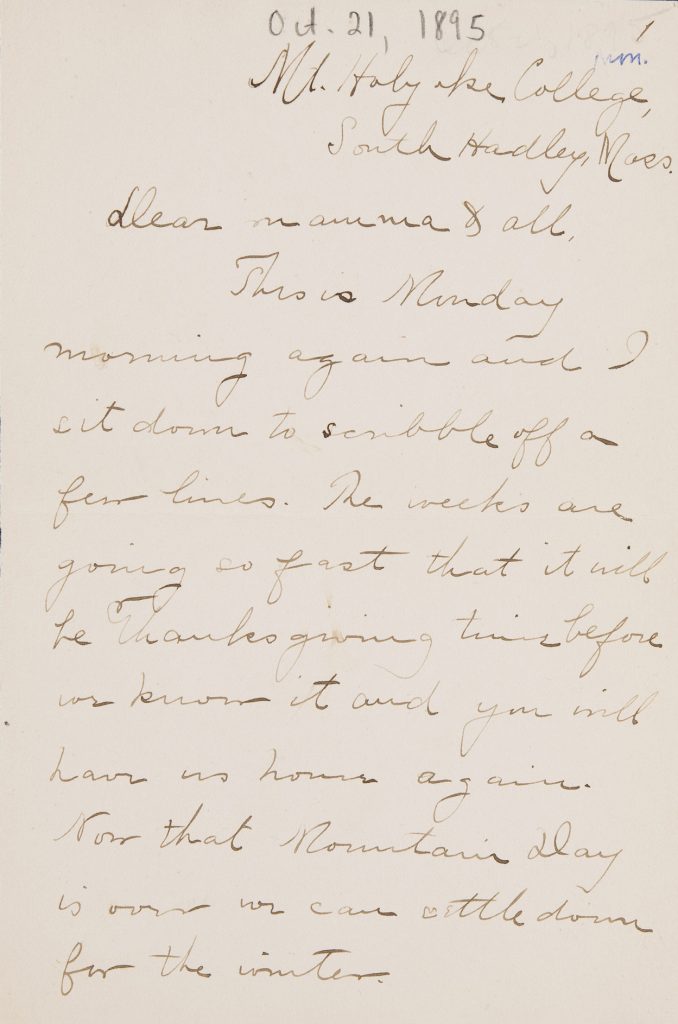
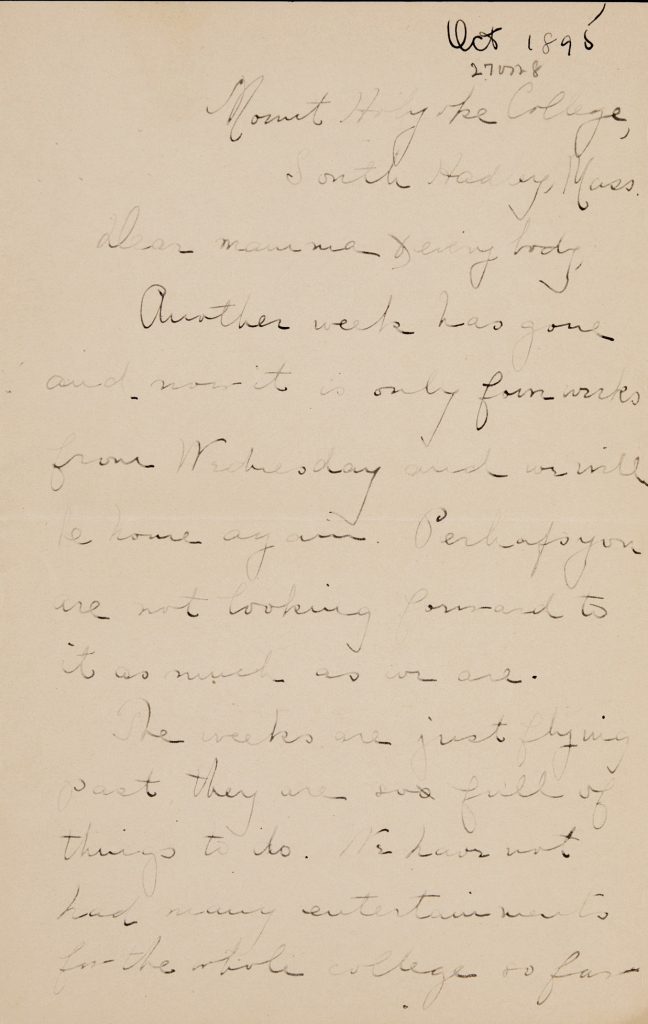
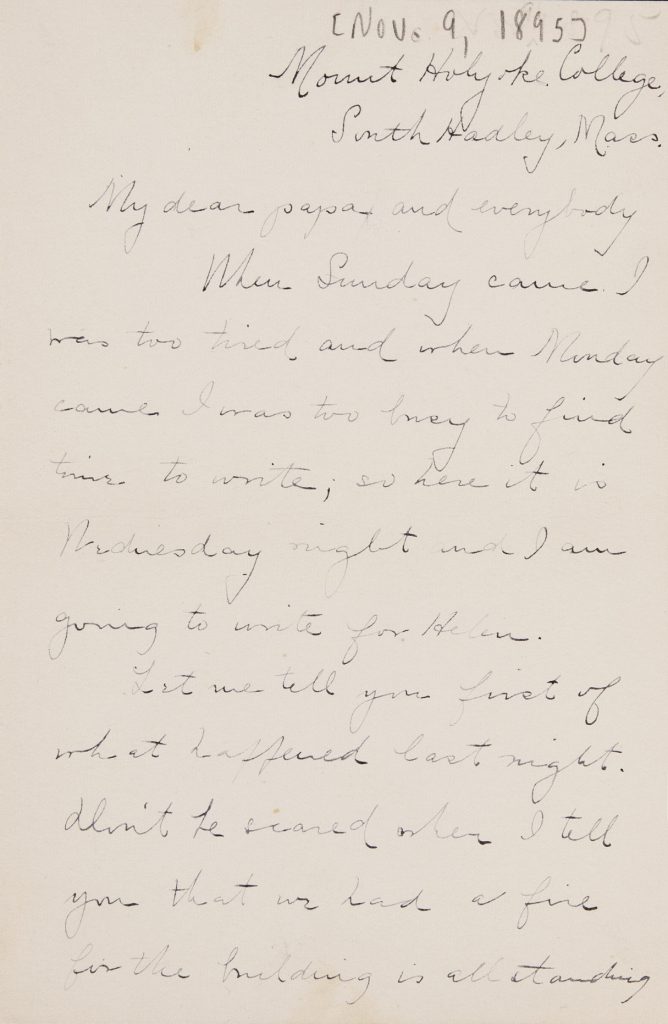
Matilda Calder mentions the school-wide suffrage vote in three of her letters home in the fall of 1895. In the letter dated October 21, she announces that she will lead the pro-suffrage faction and gauges her family’s opinion by asking, “what does papa think of having a Woman’s Rights daughter.” In her next letter, she talks about the pro-suffrage rally: “our side for Woman’s Suffrage held the rally on Saturday night. The speeches were very good and we had some patriotic songs.” On November 9, she announces her faction’s defeat, but believes that “all the good arguments were on our side” during the debate that took place on the weekend before the vote.